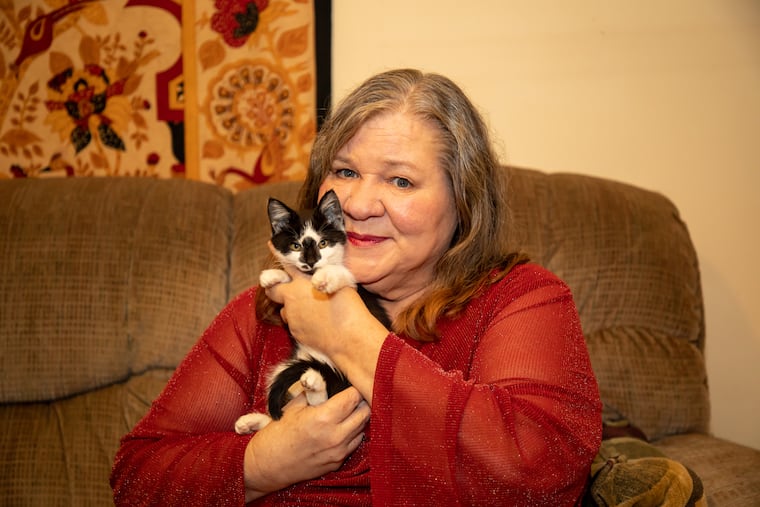Depressed? ‘Get a cat.’ At least that’s what this pulmonologist from the Philly area prescribed his patient.
A pulmonologist with Philly ties is going viral after he "prescribed" his longtime patient "a cat."

As Robin Sipe of Grottoes, Va., reviewed her doctor’s notes following a routine checkup, something stood out.
Instructions from her longtime doctor — pulmonologist Earl D. King — advised her when to get her annual flu shot and updated COVID-19 vaccine. But it also prescribed something you can’t typically pick up at Rite Aid: a new fur baby.
During her appointment last month, Sipe, 67, mentioned to King that she was going through a tough time since her cat died over the summer. She recalled crying in the appointment as she explained what was wrong.
King, 63, — who works at Sentara RMH Medical Center in Harrisonburg, Va., but has previously worked, lived, and attended school in the Philadelphia area — wrote down his advice for Sipe.
“Get a cat.”
Now, their story is spreading after Sipe acted on that advice and shared the good news with her local broadcast station.
Meet Earlene, the three-legged kitten
In an interview with WHSV3, Sipe held her 7-week-old kitten — a black and white baby with bright green eyes and three legs.
She didn’t expect to follow King’s orders so quickly; it just happened.
After leaving King’s office, Sipe visited her local farm to pick up produce. That’s when she saw the kitten, one of a litter of five and missing most of a front paw after suffering an injury after birth.
Sipe described their connection as “instant” and could be seen snuggling and playing with the kitten in WHSV3′s interview.
“I asked if I could take the kitty home and told them I could guarantee that she’d be safe and happy inside,” Sipe told the Washington Post. “I bought three ears of corn and a cantaloupe that came to $2.99, and they agreed that an extra penny should cover the cost of taking the kitty.”
Sipe told WHSV3 that she hopes to pay it forward and take her kitten on visits to facilities working with veterans or people dealing with limb loss.
She also picked a special name for her new pal: Earlene, after the doctor she says has saved her life multiple times.
“He went the extra mile for me,” Sipe said. “And I hope that everyone can have a doctor in their life just like Dr. King.”
‘He treated my heart’
Sipe told the Washington Post she’s been seeing King for 15 years. He’s treated her for chronic obstructive pulmonary disease, a condition that can block airflow and make it hard to breathe. Sipe said King has saved her life “at least three times.”
Now, she credits King with treating her heart.
“Everything changed for the better when I found Earlene,” she told the Post.
King — who graduated from Pennsylvania State University and did his residency at Temple University Hospital — says that’s a common phenomenon for pet owners.
“Cats and dogs are important for patients for comfort or touch or well-being of their cardiovascular health, lung health,” he told WHSV3. Studies show that pets can positively impact mental health and can help older adults dealing with loneliness and isolation.
“Robin was down in the dumps, crying about the loss of her cat, and I felt that a new cat was the best remedy for her,” King told the Post.
Growing up on a dairy farm in Chester County, with herds of cats and dogs, he’d seen pets’ positive impact firsthand, he said.
“One winter, it snowed so bad the milk truck couldn’t get to the farm, and we had to run 600 gallons of milk down the drain,” he told the Post. “The cats drank as much as they could hold, and they were very happy. Having them around was a wonderful experience.”
Still, why bother reiterating “get a cat” on Sipe’s checkup summary paperwork?
Well, he told the Post, King has been in the field long enough to know that “people sometimes don’t follow your instructions.”